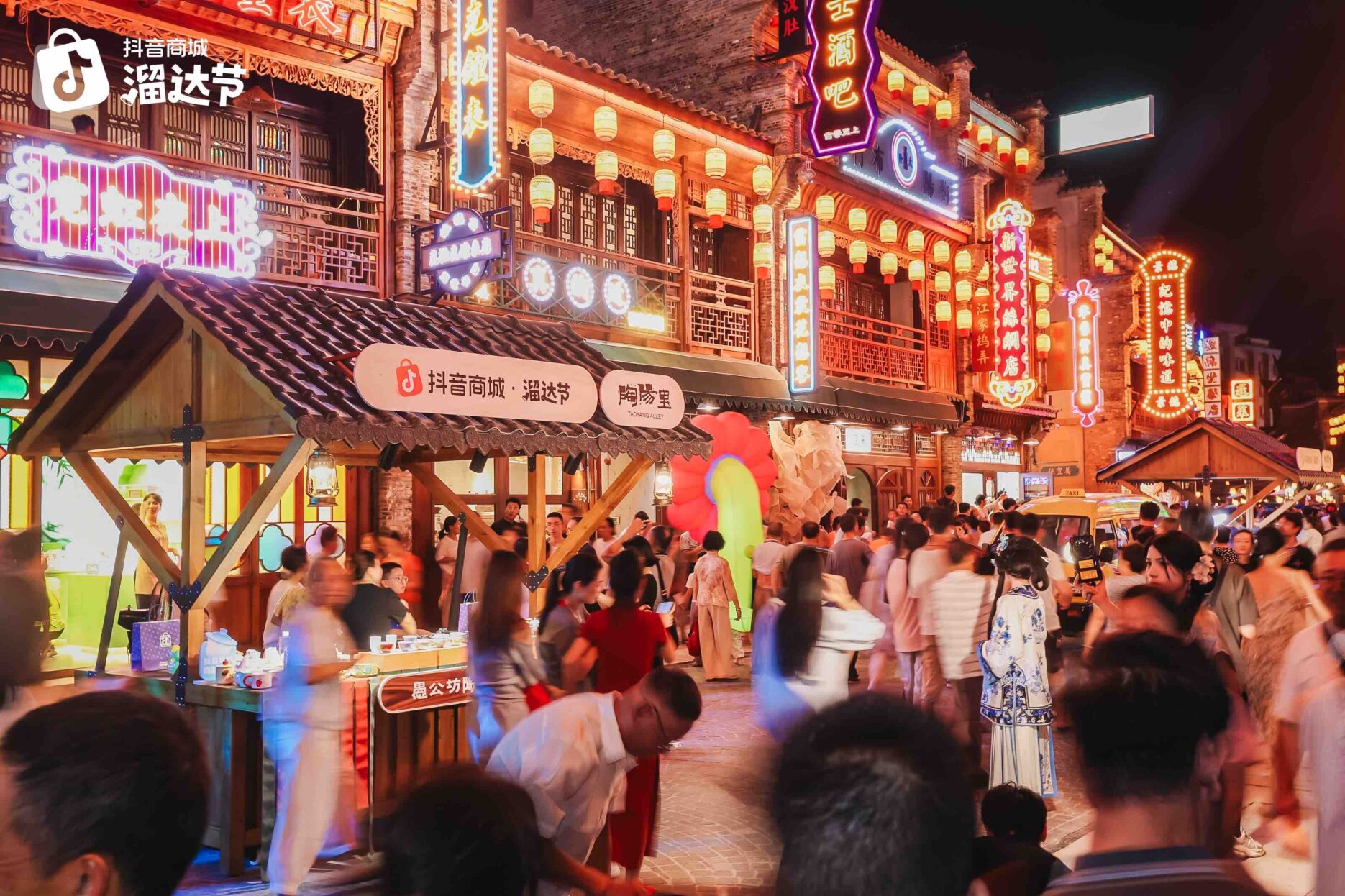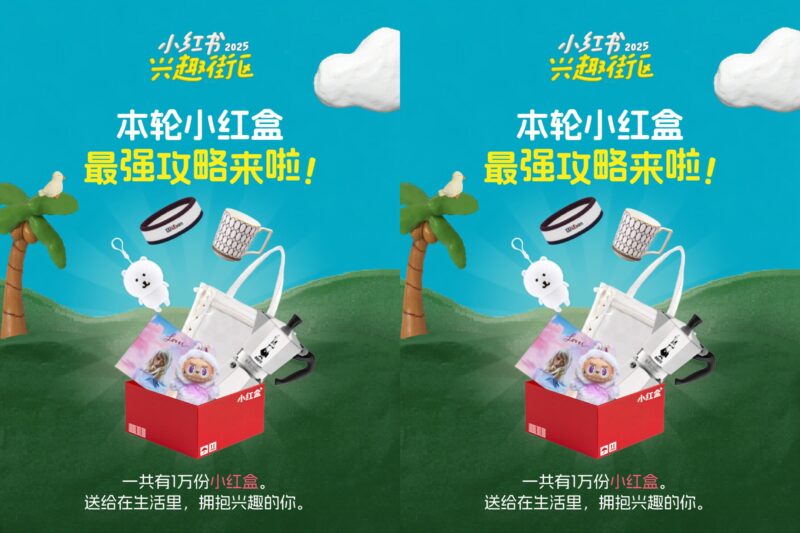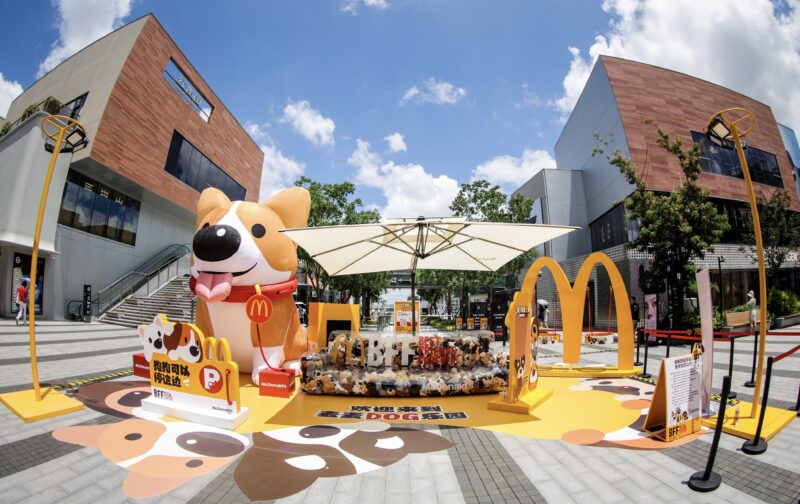Key takeaways:
- Douyin brings both an offline market and online livestreams to China’s “Porcelain Capital”, Jingdezhen.
- Focusing on “guochao” and traditional crafts, the market and livestream also feature hanfu, tea, jewellery and more.
- An omnichannel experience, Douyin integrates cultural travel and e-commerce through the festival IP.
From mid-July to early August, Douyin, the Chinese sister app of TikTok, launched an online and offline event called the “Stroll Festival” (officially Liuda&Jie, 溜达节). Hosted in Jingdezhen, Douyin Mall, the platform’s e-commerce arm, coordinated hundreds of merchants, streamers and influencers to bring the event online.
Jingdezhen (景德镇), a small city in Jiangxi Province in southern China, has long been known as the “Porcelain Capital”. In recent years, with the rise of “Guochao 3.0” and “New Chinese Style”, its products have been refreshed frequently, gaining popularity among younger audiences. With the rise of intangible cultural heritage (ICH) and cultural travel, Jingdezhen has become a popular destination. This past May Day holiday, many young professionals chose the city for its markets, culture, and sights.
Many young professionals chose the city for its markets, culture, and sights
Citywalk, Chinese style
For the offline aspect, Douyin hosted a market with over 300 merchants in Jingdezhen. Many of the participating vendors operate in the “Guochao” or traditional culture sphere, from hanfu brands to “Chinese-style tea” brands such as CHAGEE. Traditional crafts also featured heavily at the festival, not just local ceramics artisans, but also brass craft and figures like Nezha from the film Ne Zha 2.
The market was spread across five tourist attractions around Jingdezhen, with other merchants offering tea sets, ICH chinaware, jade, gold and jewellery, as well as flowers, local delicacies and even cultural and creative IPs, covering both traditional and innovative creations.
As with any creative market today, food, beverages and activities were not amiss at the Stroll Festival. For offline visitors, there were performances such as an evening drone show and a porcelain band playing ceramic-tuned percussive instruments.
Cloud market
For a Douyin-hosted event livestreamed online, this was the main attraction. Unlike usual studio livestreams, merchants and the “Stroll Festival” streamed from the outdoor markets, providing immersive experiences for viewers who couldn’t attend the offline market.
Douyin organised 12 of the biggest merchants into the “12 Shichen of Jingdezhen” (a shichen, 时辰, is a traditional Chinese timekeeping unit equivalent to two hours). Rather than a continuous 24-hour event, the talks and craft showcases were livestreamed across 10 days at different times. Piececool, a “guochao” 3D metal model kit brand, brought its wearable Phoenix Coronet model to the “12 shichen” livestream. Meanwhile, the Jingdezhen China Ceramics Museum hosted a “night at the museum” livestream, showcasing its collection, including the (in)famous “Speechless Buddha”.
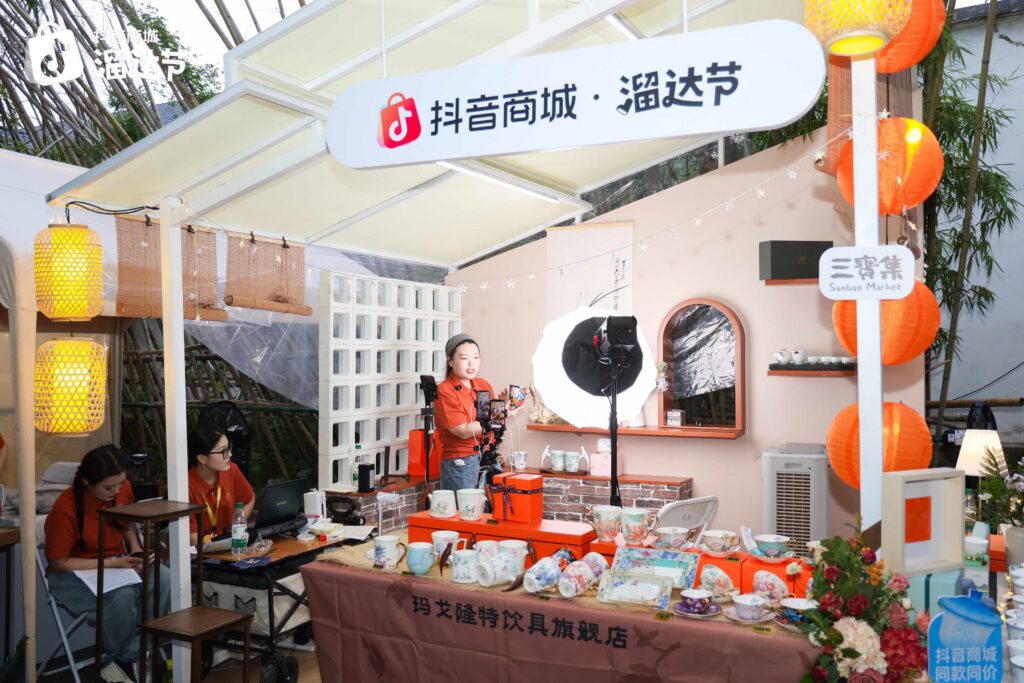
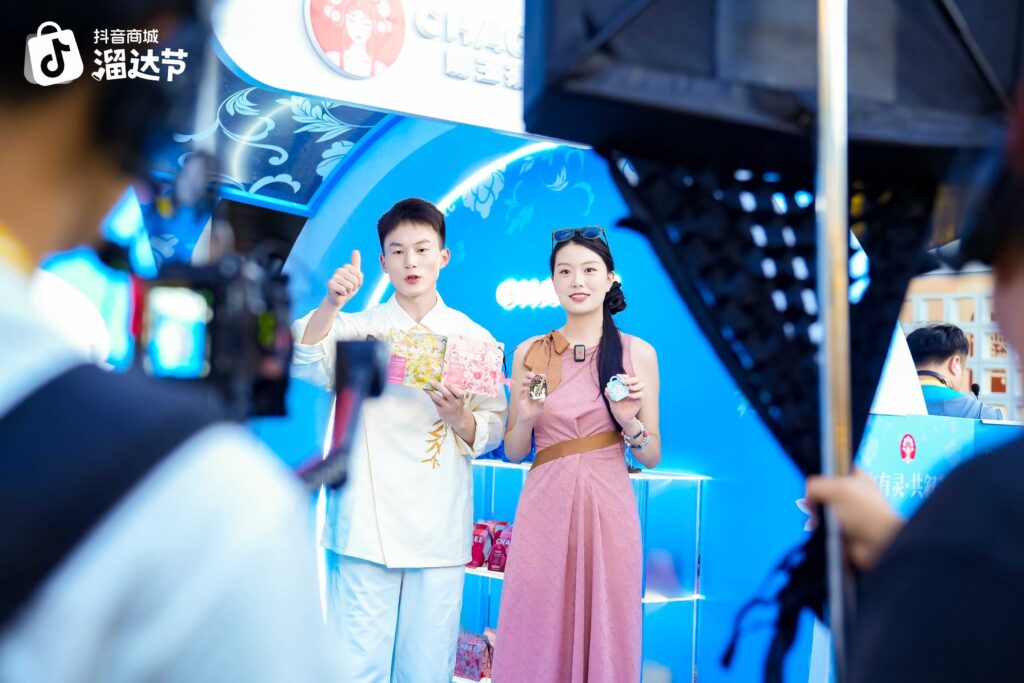
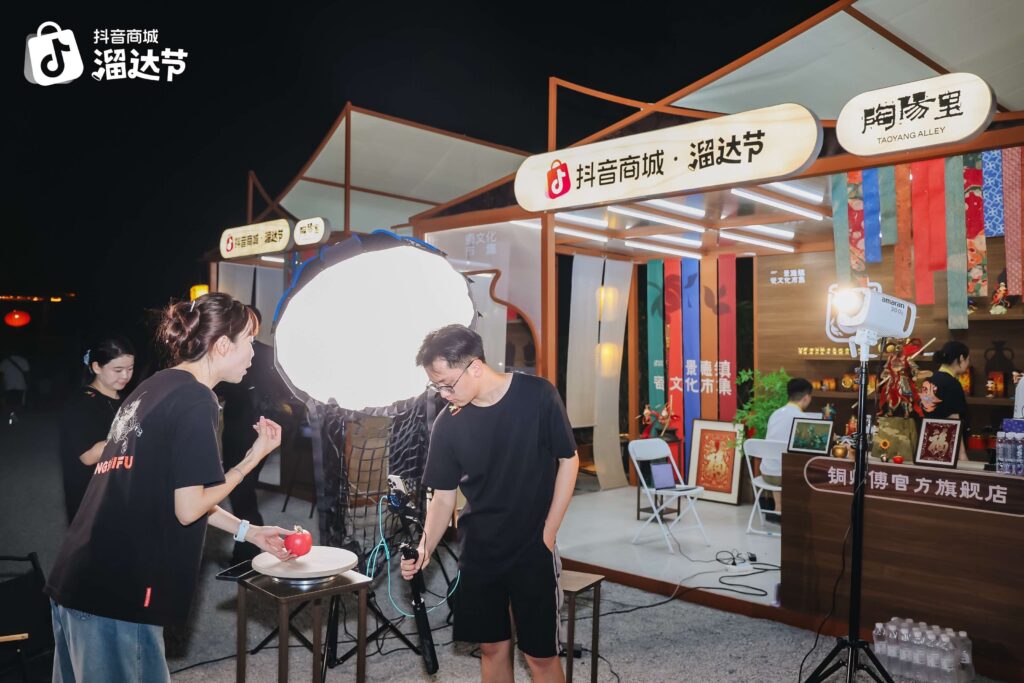
While livestreamers took viewers on a tour of the booths, some merchants also visited others, especially food stalls, while streaming. This interactivity created a festive atmosphere. Brands also innovated with their streams: the hanfu brand Guzhuo not only hosted a mini fashion show featuring Jingdezhen china, but paired it with a tea ceremony to complement the traditional lifestyle. The livestream reached the top 5 on Douyin’s ICH livestream category.
By the people
people can feel there is a real person behind the campaigns and sales events
There is a new buzzword in marketing, advertising, and generally anything business-related in China, “活人感” (lit. sense of the living). It is a mix of brand personality and a pushback against the “dead internet theory”. The idea is that people can feel there is a real person behind the campaigns and sales events, not just a bot or a corporate machine. Douyin’s “Stroll Festival” is an inspired example of that.
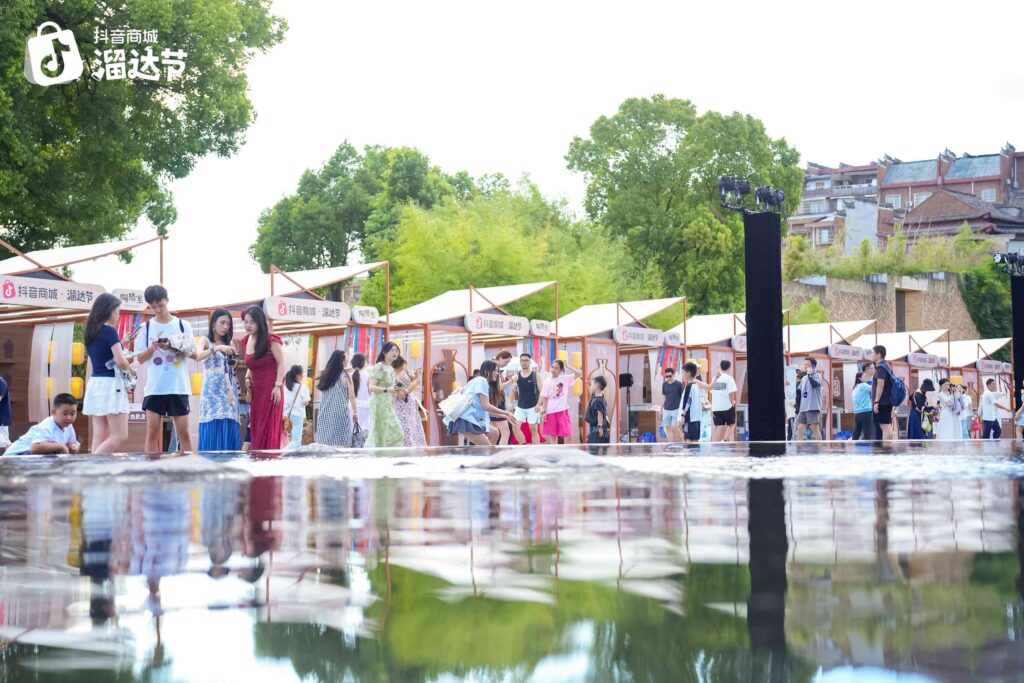
All the buzzwords of the past year, emotional consumption, experience economy and cultural marketing, all point to the fatigue with transactional shopping that lacks a human touch. Douyin brings the usual backstage artisanship to the forefront, creating content for seeding, while offering a “cloud shopping” experience through livestreams of the offline market. Themed livestreams bring an overarching omnichannel layer to users. Not only can viewers buy from the channels, but offline visitors can also scan the code to buy directly from the livestream channels.
The “Stroll Festival” or Liuda&Jie is set to arrive in more cities beyond Jingdezhen in the future. This new IP is likely Douyin’s next step in social commerce, uniting the content-seeding-transaction into one ecosystem. This, in Douyin’s own way, challenges the “interest community” that Rednote is building. It would seem that the social-turned-ecommerce platforms are now finding the next phase of the market, while traditional e-commerce platforms are now locked in a war of attrition in the “local life” services.
Need to boost your China strategy? Dao Pro delivers bespoke insights on marketing, innovation, and digital trends, direct from Chinese sources. Find out more from our Dao Strategy Team here.




